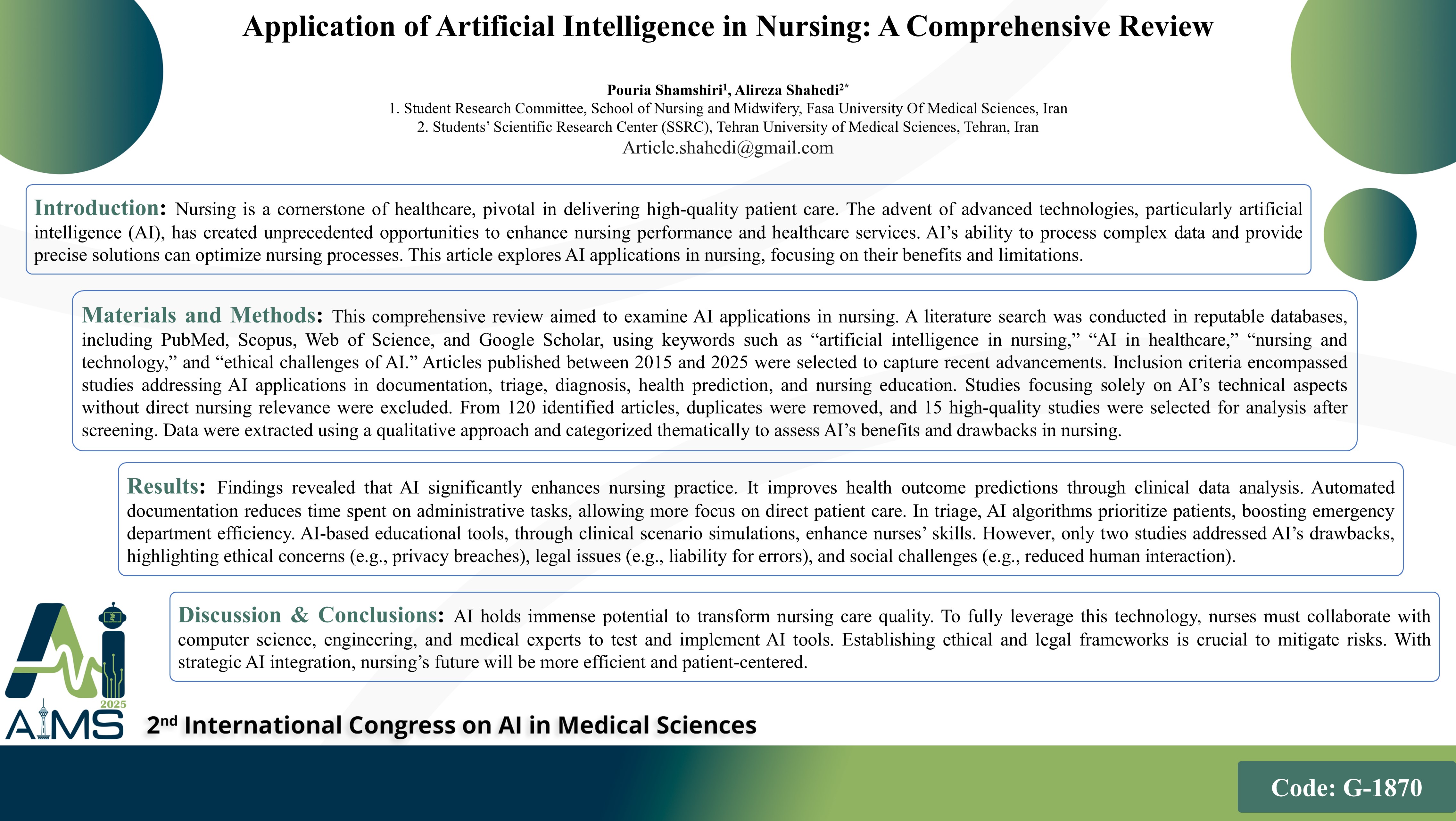کاربرد هوش مصنوعی در پرستاری: مروری جامع
کد: G-1870
نویسندگان: Pouria Shamshiri ℗, Alireza Shahedi *
زمان بندی: زمان بندی نشده!
برچسب: سیستم های تصمیم یار بالینی
دانلود: دانلود پوستر
خلاصه مقاله:
خلاصه مقاله
Introduction: Nursing is a cornerstone of healthcare, pivotal in delivering high-quality patient care. The advent of advanced technologies, particularly artificial intelligence (AI), has created unprecedented opportunities to enhance nursing performance and healthcare services. AI’s ability to process complex data and provide precise solutions can optimize nursing processes. This article explores AI applications in nursing, focusing on their benefits and limitations. Methods: This comprehensive review aimed to examine AI applications in nursing. A literature search was conducted in reputable databases, including PubMed, Scopus, Web of Science, and Google Scholar, using keywords such as “artificial intelligence in nursing,” “AI in healthcare,” “nursing and technology,” and “ethical challenges of AI.” Articles published between 2015 and 2025 were selected to capture recent advancements. Inclusion criteria encompassed studies addressing AI applications in documentation, triage, diagnosis, health prediction, and nursing education. Studies focusing solely on AI’s technical aspects without direct nursing relevance were excluded. From 120 identified articles, duplicates were removed, and 15 high-quality studies were selected for analysis after screening. Data were extracted using a qualitative approach and categorized thematically to assess AI’s benefits and drawbacks in nursing. Results: Findings revealed that AI significantly enhances nursing practice. It improves health outcome predictions through clinical data analysis. Automated documentation reduces time spent on administrative tasks, allowing more focus on direct patient care. In triage, AI algorithms prioritize patients, boosting emergency department efficiency. AI-based educational tools, through clinical scenario simulations, enhance nurses’ skills. However, only two studies addressed AI’s drawbacks, highlighting ethical concerns (e.g., privacy breaches), legal issues (e.g., liability for errors), and social challenges (e.g., reduced human interaction). Conclusion: AI holds immense potential to transform nursing care quality. To fully leverage this technology, nurses must collaborate with computer science, engineering, and medical experts to test and implement AI tools. Establishing ethical and legal frameworks is crucial to mitigate risks. With strategic AI integration, nursing’s future will be more efficient and patient-centered.
کلمات کلیدی
Artificial Intelligence, Nursing Care, Medical
